Business Law Assignment: Contract Law Analysis and Solution
VerifiedAdded on 2020/05/03
|5
|532
|58
Report
AI Summary
This business law assignment analyzes a contract law scenario involving an offer to sell a van. The assignment examines the principles of offer, acceptance, and counter-offers, referencing key legal cases such as Brogden v. Metropolitan Railway Co., Hyde v. Wrench, Powell v. Lee, and Tinn v. Hoffman. The analysis focuses on whether a valid contract was formed between the parties based on the communication and terms of the offer and acceptance. The conclusion determines that no valid contract was formed due to the lack of proper acceptance as per the specified method of communication. The assignment provides a clear understanding of the essential elements required for a valid contract and their application in a real-world situation.
1 out of 5
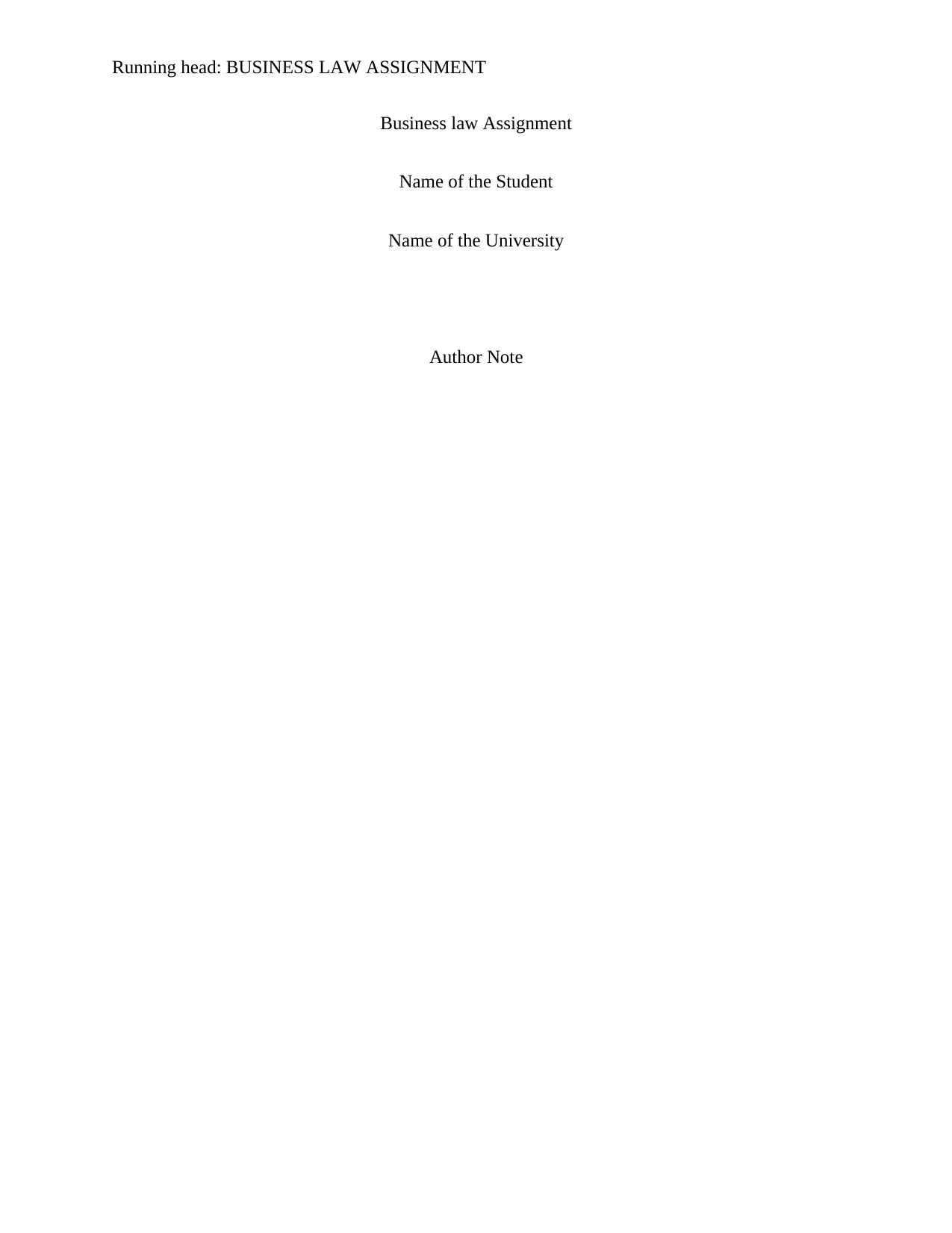
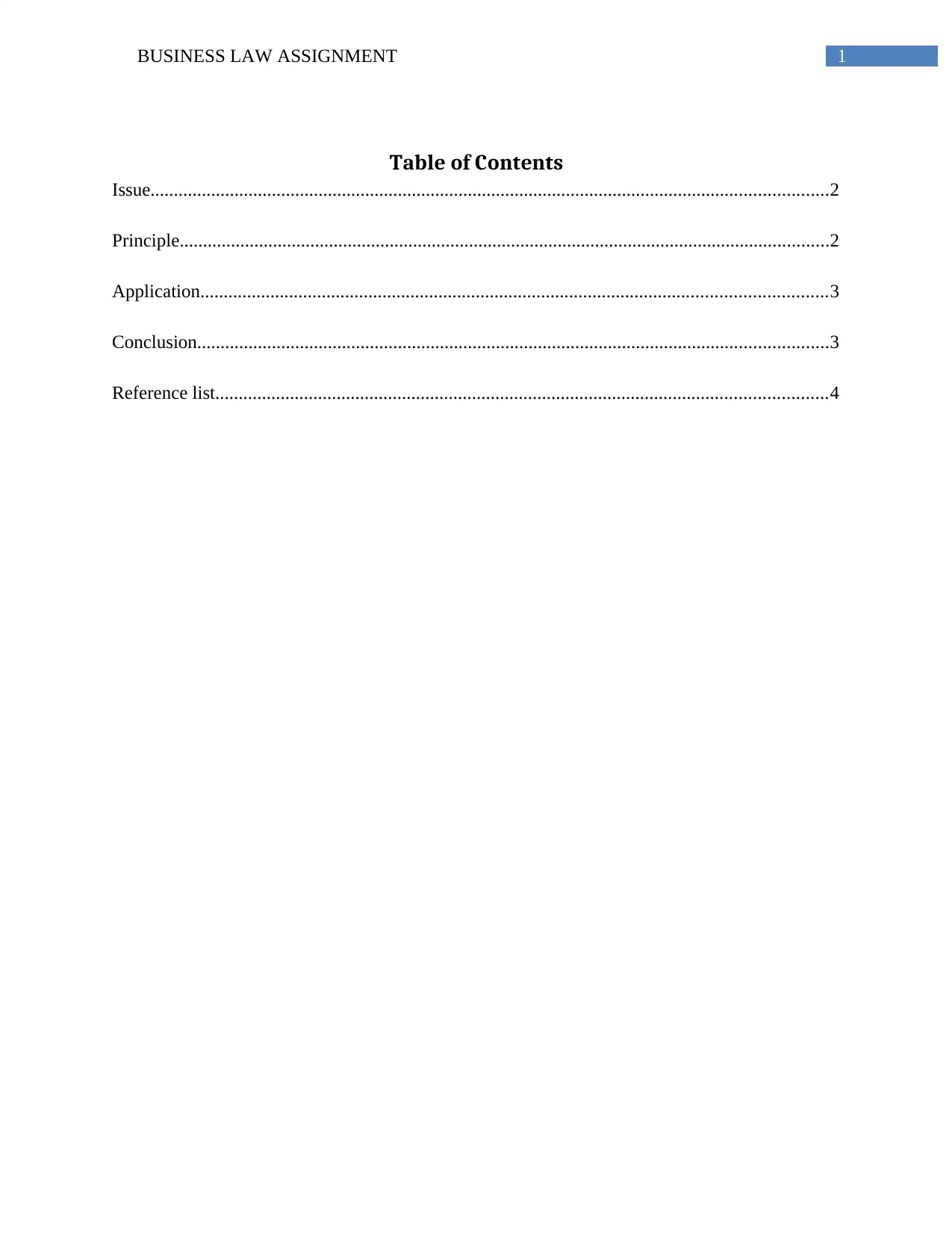
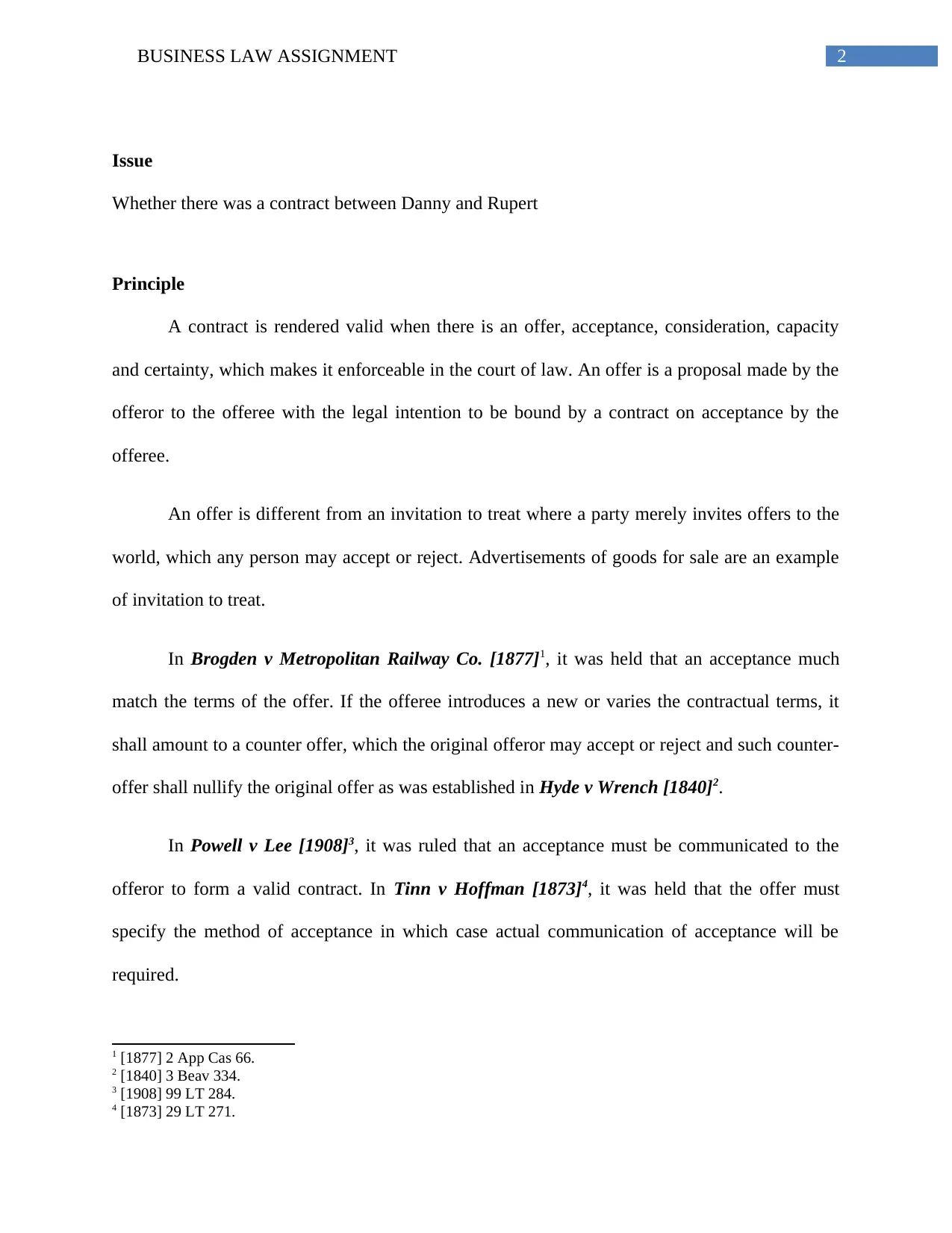

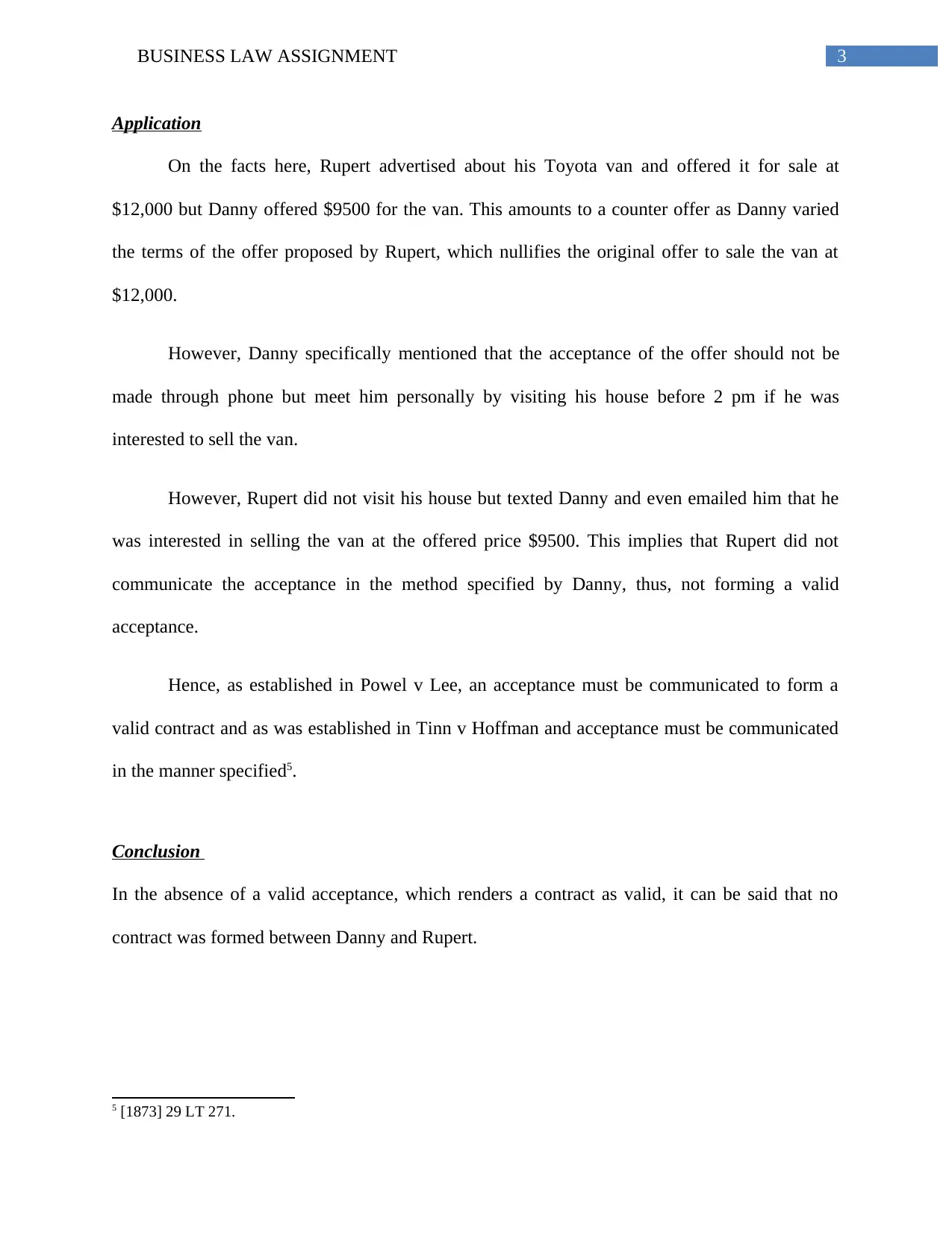
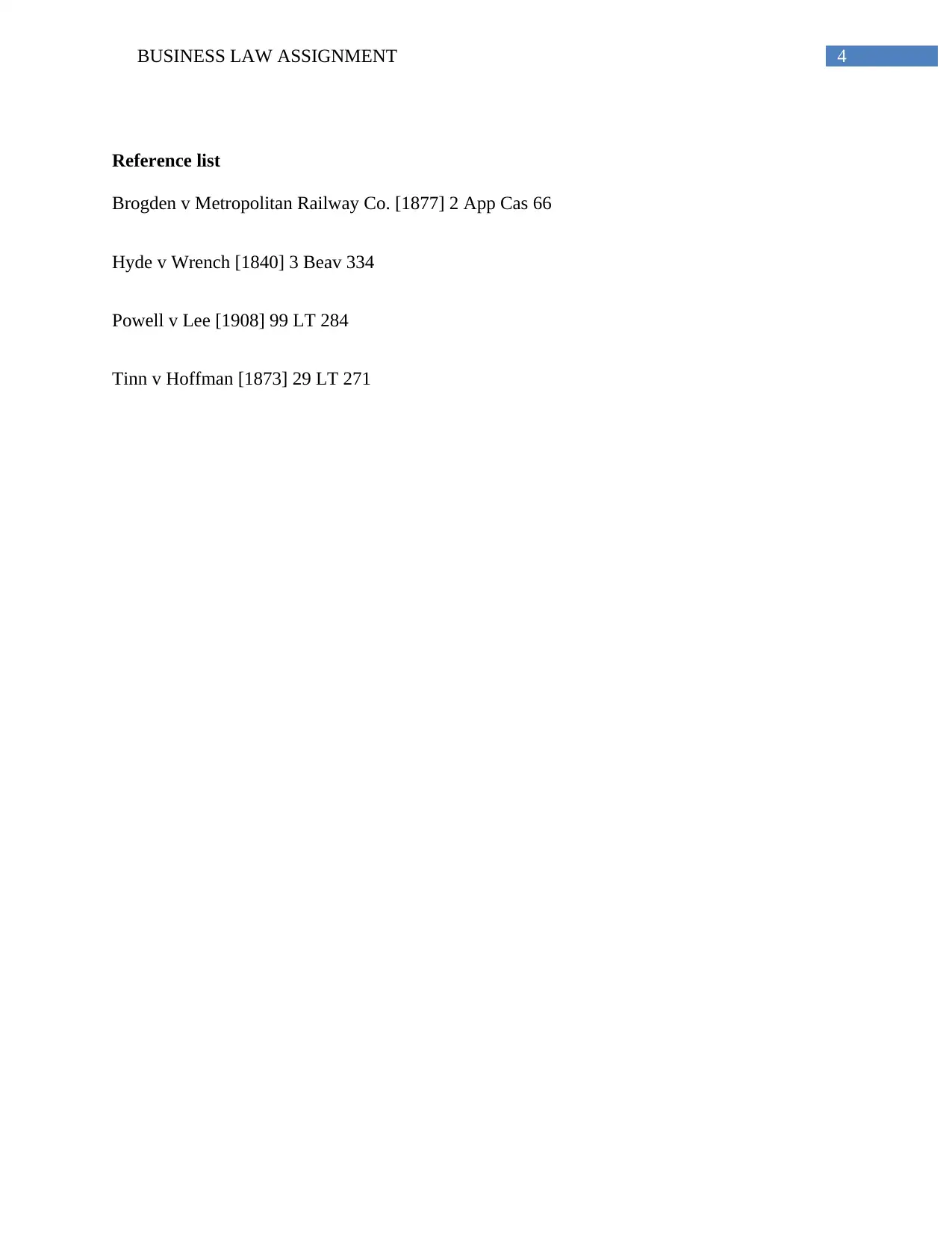






![[object Object]](/_next/static/media/star-bottom.7253800d.svg)